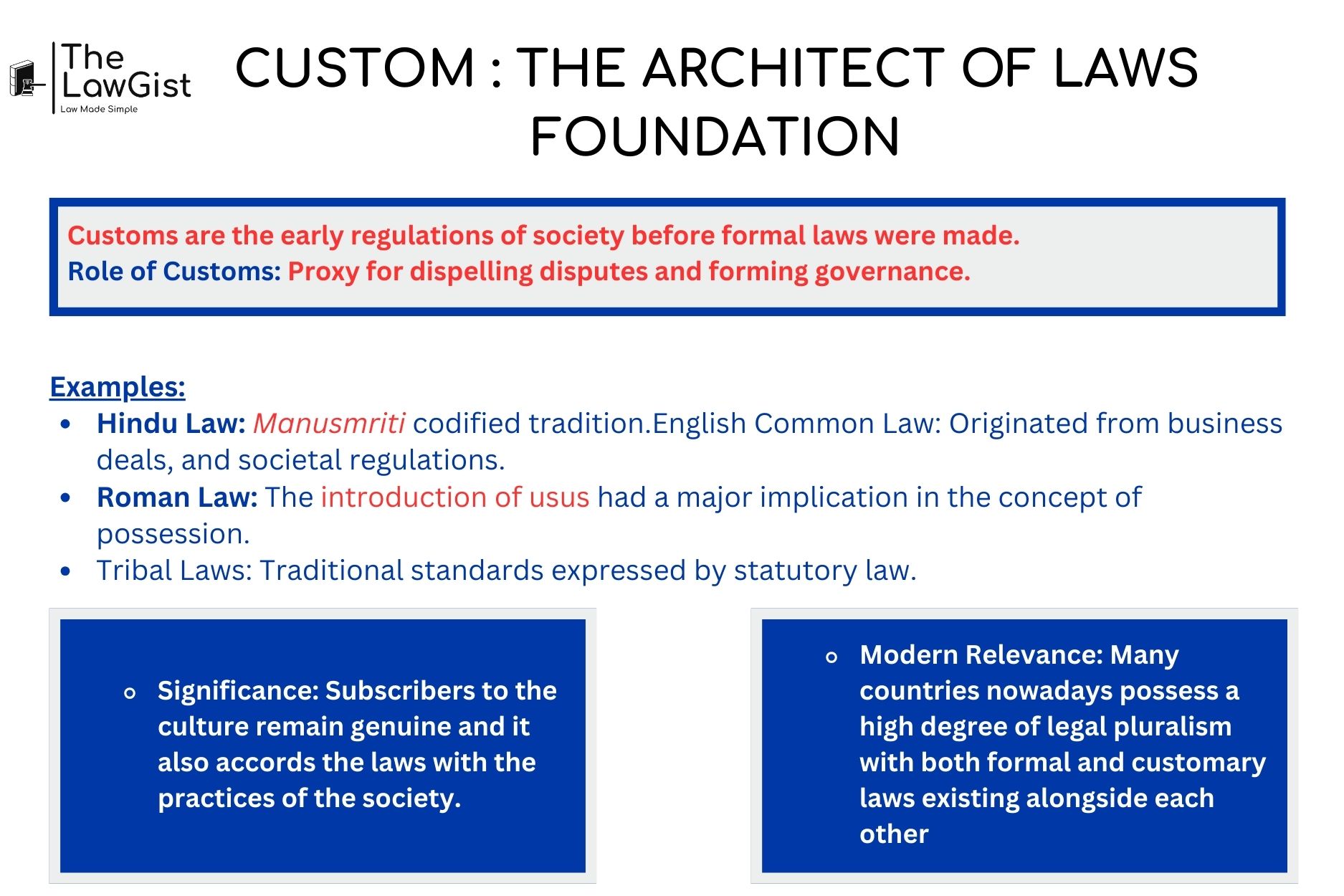Definition and Nature of Customs
Customs are the long standing age old practices which are observed by any community, which certainly form the bedrock of the legal framework for the society. Hence we can say this, Customs are the practices that evolve over time to become laws. By this definition, it is clear that customs are a source of law. Customs are foundation of the lawmaking can be briefly explained by these 4 factors which are-
- Historical Role
- Transition to Law
- Cultural Relevance
- Modern confluence
Let us consider an example:
Example: In a village named Prokhil, there is a custom where the in-laws must offer rice to the bride during the marriage ceremony. The marriage is considered valid only if the bride accepts the rice. Seetha, who was married to Rama, rejected the rice offered to her and later stood before the court to dispute the validity of the marriage. Seetha claimed that the marriage was invalid as she did not accept the rice. Rama, on the other hand, argued that the marriage was valid because all other rituals were performed. The court ruled that the marriage was invalid as the custom, which is a longstanding practice in the village, was not followed.
Essentials for a Custom to Be Recognized as Valid:
Customs should not violate existing legal principles but can be followed if they meet certain requirements. These include:
- Immemorial Antiquity
A custom must be ancient and have existed for a notable period. It cannot originate recently or be of a temporary nature.
Example: Nagendran claimed the right to occupy his younger brother’s property, citing a custom that evolved only five years ago. The court declared the custom invalid, as it did not meet the criterion of immemorial antiquity. - Certainty
A custom must be definite, clear, and unambiguous
Example: In a village, there was a custom of killing a human on an auspicious day, believing the person would return with information about ancestors in heaven. The court ruled this custom invalid, deeming it vague, ambiguous, and unreasonable. - Compulsory Observance
For a custom to be valid, it must have been followed continuously without interruption. Customs that are sporadically observed lose their validity.
Example: A family claimed that hunting leopards was their customary practice. However, In 2000 due to the endangered species status of the leopard this practice was outlawed. When the ban was lifted and the family resumed hunting, they were arrested. The court held that the practice could not be considered a valid custom as it had not been followed continuously. - Unanimity of Opinion
A valid custom must be accepted and followed by the majority of the community. If it is left to individual discretion, it cannot be recognized as a custom.
Example: If a custom exists in a village, all the villagers must unanimously accept it as a practice. If individuals choose whether or not to follow it, the practice cannot be regarded as a valid custom. - Consistency with the Law
A custom must not conflict with any existing law. Customs that breach legal principles or promote unlawful acts are invalid.
Example: A person cannot justify acts of murder or robbery by claiming them to be customary practices, as they directly conflict with established laws.
Customs are essential for drafting law. Customs behave as the balance between both Societal practices and formal justiciable structure. They have influenced legal systems like English common law and mercantile law. Roman law has also focused on customs which contain the core value of the culture and tradition of society and also encourage laws that promote peaceful coexistence among people, which is the primary objective of framing laws.
Also Read– ARBITRATION AND CONCILIATION IN INDIA
ARTICLE WRITTEN BY – Gaddam Sneha Deepthi
EDITOR – Nancy Sharma







